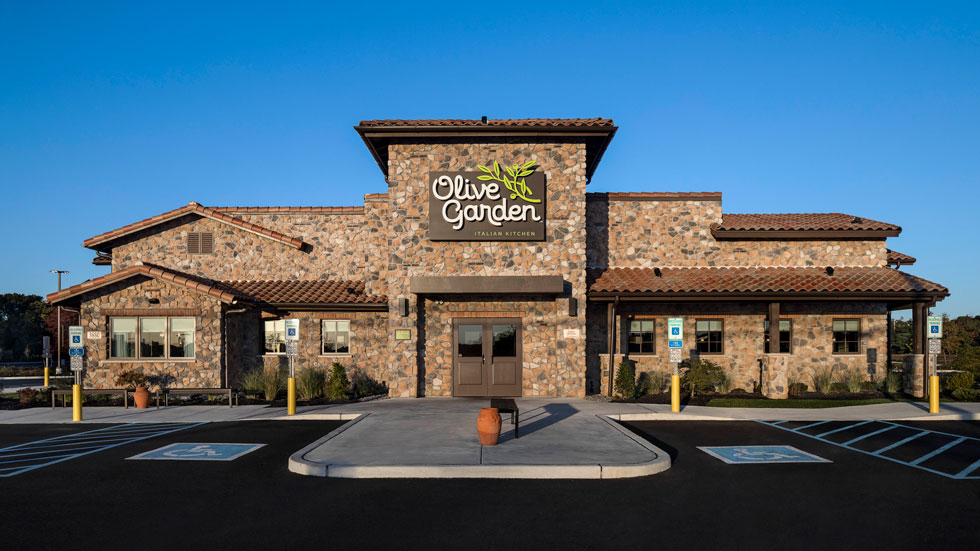Four Corners Property Trust, Inc. (NYSE:FCPT) is still less than a decade old, yet the net lease REIT has seen considerable growth and tenant diversification in the past few years—a trend that is on course to continue. The REIT owns more than 1,000 buildings across the country, predominantly restaurants and similar stand-alone retail buildings.
Several years ago, activist investor Starboard Value became a large shareholder in Darden Restaurants and pushed for change on multiple fronts. One of Starboard’s primary objectives was to monetize the significant value of Darden’s owned real estate portfolio.
That led to the creation of Four Corners Property Trust in 2015 when Darden spun off more than 400 properties—entirely casual dining restaurants such as Olive Garden, LongHorn Steakhouse, and Yard House. Since inception, Four Corners has grown its portfolio through systematic acquisition. In fact, during the fourth quarter of 2022, Four Corners purchased a building every 1.4 business days.
Starboard’s initial slate of directors on Darden’s board included Bill Lenehan, who had experience both investing in REITs and buying buildings. For over a year, Lenehan worked with Darden’s management and a team of advisors to crystalize the strategic direction of their real estate that resulted in the spin-off. Upon completion of the spin, he left Darden’s board and became the CEO of Four Corners.
“I had run a company that was essentially a single-tenant net lease SpinCo in Canada called MI Developments (now known as Granite REIT), which traded on the Toronto stock exchange, so I was familiar with the dynamic,” Lenehan says. “I saw in Darden’s portfolio a rare opportunity to create a publicly traded REIT that had numerous attractive attributes. The kind of company I had always wanted to be able to buy shares in.”
Lenehan was given what he called, “a blank piece of paper,” because although the buildings were going to be Darden concepts, everything else was on the table, including selecting which properties to include, setting the rent levels, the terms of the leases, the initial balance sheet, governance, and the go-forward strategy of the company. “We had a lot of flexibility, but with that came the responsibility to get it right,” Lenehan says.
Earlier in his career, Lenehan had spent a decade as an investment professional at Farallon Capital Management, so he had significant experience in investing in REITs and strong views as to what made them successful.
“The dedicated REIT investor typically favors substantial tenant diversity,” he says. “We knew that we were going to be 100% Darden, we needed to get everything else right in order to get an attractive cost of capital to accretively grow and diversify. Cost of capital is absolutely critical for net lease REITs.”
Portfolio Composition
In the last few years, Four Corners has diversified outside of restaurants, with acquisitions in the medical retail and auto-service property sectors. The portfolio now spans 47 states, comprising 121 brands. The portfolio is 99.9% occupied with an 8.6-year average lease term. Meanwhile, the team has grown from six people at inception to nearly 30 at their headquarters in Mill Valley, California today.
“We’re buying buildings that have a low absolute dollar purchase price—a couple of million dollars apiece,” Lenehan says. “It’s very granular. In order to do that efficiently, you need process and technology.”
From the outset, the company came up with a scorecard to grade properties on roughly a dozen different variables, ultimately reducing the acquisition opportunity’s attractiveness to a single number. The criteria consider strategic fit first and then elements of creditworthiness and real estate quality.
More specifically, credit components assess the financial health of the lease guarantor, the four-wall financial performance, the operation’s ability to cover rent payments, and the length of the lease. Real estate sub-components to the scorecard include the physical location, where rent is compared to market levels, and nearby demographics.
“We don’t talk about a property as ‘it’s a Burger King that is an outparcel to a Walmart in Florida, so we should prioritize that acquisition.’ Instead, we say, ‘it’s a 78 because of location and brand, but not higher as the lease term is short and site level EBITDA is only average,’ for example,” Lenehan says. “We have scored tens of thousands of properties; this also means we have collected lots of data. Scoring properties is a key framework, it aligns my team and my board on how we run the acquisition process.”
Four Corners is also very technology-enabled in its acquisitions. “We use a software program called Dealpath, which allows us to be very efficient in the due diligence of properties to make sure they are clean environmentally, have reasonable leases, and that we have reviewed in detail the complete deal file,” Lenehan says.
Influence of the Pandemic
When looking back at 2020 and the early stages of the COVID-19 pandemic, Lenehan is often asked what it was like running a REIT with predominately restaurant tenants amongst store closures and other interruptions to business operations.
“The reality is, it was too late to do something different,” he says. “You were either conservative going into COVID or you weren’t. Our stock dropped in about a week by the amount of rent we would have collected from all of our tenants in over nine years. But the actual impact on our company was de minimis.”
In fact, Four Corners collected approximately 99.8% of its rent by July 2020, so there was little effect on business overall, and the stock finished up in 2020.
“We were back making acquisitions by the end of June 2020,” Lenehan says. “We own restaurant buildings, but we don’t own local chef-owned restaurants. Not all restaurants are created equally from a credit perspective. Our scorecard process served us well, our rent collection proved extremely resilient.”
Opportunities for Growth
Entering 2023, external economic and market factors make it challenging for many REITs to justify external growth via acquisition. Four Corners is uniquely positioned in the net lease space because it has a relatively favorable cost of capital, according to Wesley Golladay, senior research analyst at Baird.
“Their strategy is to buy net lease assets in the restaurant, auto service, and medical retail industry, while the more targeted investment approach incorporates underwriting that focuses on the quality of the location, strength of the tenant’s business and credit profile, as well as the quality of the lease (rent level, annual rent increases, and lease term),” he says.
“Management takes a long term approach to the business and will slow acquisition activity when pricing is aggressive, or the long term cost of capital is not favorable. The portfolio is also well positioned with strong rent coverage and high exposure to tenants with an investment grade profile,” Golladay adds.
Since inception, Four Corners has been consistent in growing accretively per share—adding to its acquisition team and its capabilities, which has led to steady, robust growth, with its dividend increasing meaningfully over time.
“We’re a pretty easy story to understand,” Lenehan says. “You’ve most likely been in our buildings. If you’ve ever eaten at an Olive Garden, you see how productive they are. We have very good disclosure and announce every acquisition the day it closes, so it is easy to follow what we are doing in nearly real-time. We keep the financial leverage modest.”
Since the team started from scratch at spin-off, Four Corners has been very selective around the kind of people it has wanted to attract to the business and has built a team that’s accomplished and has low turnover.
“That has given us a stable of experienced team members that are working to help us continue to grow for our shareholders,” Lenehan says. “Management and the team generally are aligned with our shareholders. We own a vast number of buildings, but our most important corporate assets are our people.”

